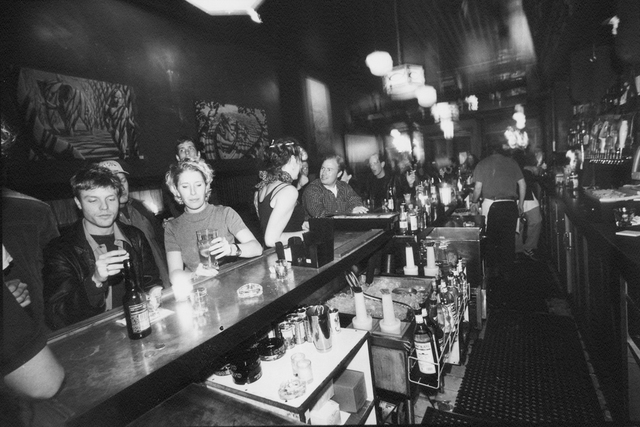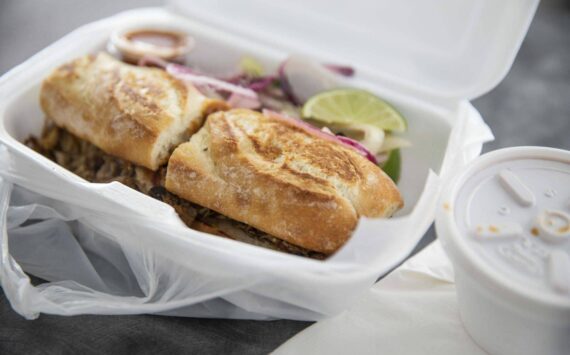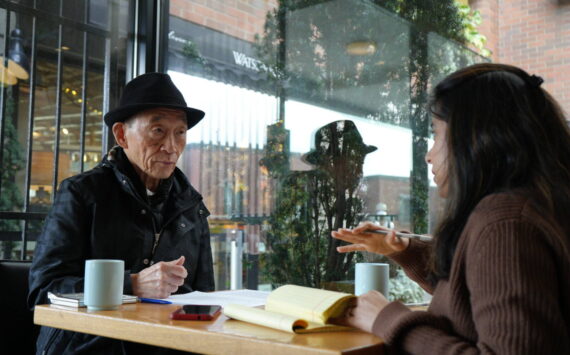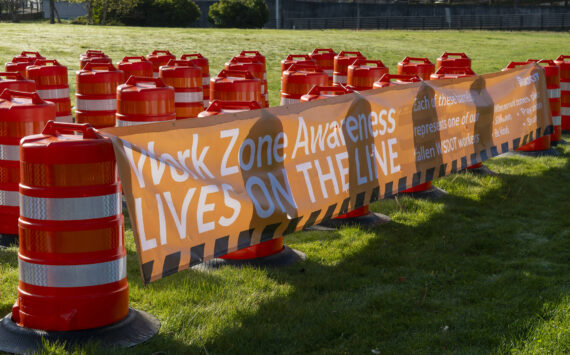Have puffy hair. Wear very large clothes. Later, when you look back at photos of the ’90s, you will think “So much fabric.”
Go to Septieme on Second Avenue in Belltown and sit in the courtyard and salt the butter, which is served French and unsalted and exotic.
Have a job that pays just enough for rent and beer. Some (good) (bad) months, rent probably costs you less than beer.
Drink a lot. Drink at the Comet. If you don’t know where to go or what to do, go to the Comet and drink. It’s a cliche for a reason. If you’re on your own and don’t see anyone you know, chat with Jason behind the bar, or Mike. Get a weird rash from resting your forearms on the Comet’s splintered bar. Name this rash Bar Burn.
Say to your best friend, “It’s a good thing we’re not alcoholics so we can get drunk every night!”
Ride your bike home down Fairview, with its long swooping curves. Think drunkenly how Fairview is like the Renton S-curves of Seattle.
Sunbathe topless at Denny Blaine. Glare righteously at the cops who come to ogle.
Go to shows. Go like it’s your job. Go to the Off Ramp and the Vogue and the OK Hotel and RKCNDY and the Storeroom and the Central and the Crocodile. (Don’t go to the Weathered Wall, ever.) Go to so many shows that you get bored with it. Go to so many shows that seeing Screaming Trees one more time sounds like a chore. You will never tire of seeing Flop, however.
End up at the Dog House.
Save your extra money to buy books at Bailey/Coy. Books of impenetrable theory that will sit unread on your shelf.
Wonder often, out loud, who the hell all these new people are.
When you visit other cities, get asked about Seattle. The people you meet want to move there. No one used to move to Seattle except aeronautical engineers and, like, rabid fishing enthusiasts. No one used to know where Seattle even was. They thought maybe it was in Oregon.
When you fly home from visiting friends in Chicago, see a young man at O’Hare headed for your gate. He has long hair and a leather jacket and a battered guitar case. Feel obscurely sad about this. Don’t tell him that Seattle has become a place he wants to go precisely because no one ever wanted to go there. No one was looking, and a bunch of music and other stuff got made. Don’t tell him he’s going to ruin it simply by going there. Be afraid it’s true, though.
Wish that you could write. Feel amazed by the girls around you who are making art and starting bands and opening bars—Seattle looks like a boys’ club, but there are all these girls all around you making shit.
Crash your boyfriend’s poker party. Smoke a cigar. Feel daring.
Try to read Infinite Jest. Fail.
Watch as people you love get sick and die of AIDS.
Notice that more people are talking more freely about heroin. It’s always been around, but lately it seems to be scouring the town suddenly. Hear about overdoses. Quit taking drugs.
Watch people quit their bands.
Lament the closing of the Dog House. Somehow related: Think about how it’s maybe time to get a real job.
Watch poets go to work at Microsoft. Don’t be depressed by this—there are undeniably too many poets. But … Microsoft? Are we supposed to take that seriously? Is this how it’s all supposed to turn out? Do we all have to go to work in tech? OK, fine.
Notice that it takes a half an hour to get to SeaTac. You used to be able to do this in 15 minutes. You have no idea how bad it will get.
Start to write. Write about food and art and film and books. Feel a little embarrassed about it, and exposed. You were good at being a rock chick. This is so … nerdly. Keep going. Suspect that everything good in life might actually be nerdly.
Always think of the new Septieme as the new Septieme.
Watch your best friend lose one art studio after another. She’s evicted from buildings in Westlake, South Lake Union, downtown, and Ballard. Everything is coming down so everything else can go up. This will continue for decades—she will eventually become an internationally recognized artist but will never find a Seattle studio safe from developers.
Books start to come out about bands you know. Read them and feel weirded out. Talk to some people who are starting a museum—a museum of the music you grew up with. Watch the messy drunken unhinged nights of your city, disjointed and pointless, turn into a story. The story is both wrong and right. Resolve to keep writing.
Move to Phinney Ridge because it’s cheap and you can have a yard.
Watch a lot of people get a lot of money, quickly. Wonder why them.
Eat the banana cake at Longshoreman’s Daughter as often as possible.
Get a job, get married, have a baby—it all happens quick as anything.
Feel unsure about where you belong in the city. You are a writer now, and so is your husband, and as such, perpetually short on dough.
Breastfeed your baby (you breastfeed, of course—you’re not a monster) and muse about what you will do. Your beloved native city, so content with—or even proud of—its loserdom has become a city of winners. People move here to make money, to accomplish things.
Want to yell at them: “That’s not what Seattle is for!” But it is, now. Feel displaced.
Cover your baby’s head with kisses. You don’t know it now, but one day when she’s a teenager she will say to you: “Your past is our history,” and you will feel an indescribable excitement and satisfaction.
Claire Dederer worked as a writer and film editor at Seattle Weekly from 1995 to 1999.





